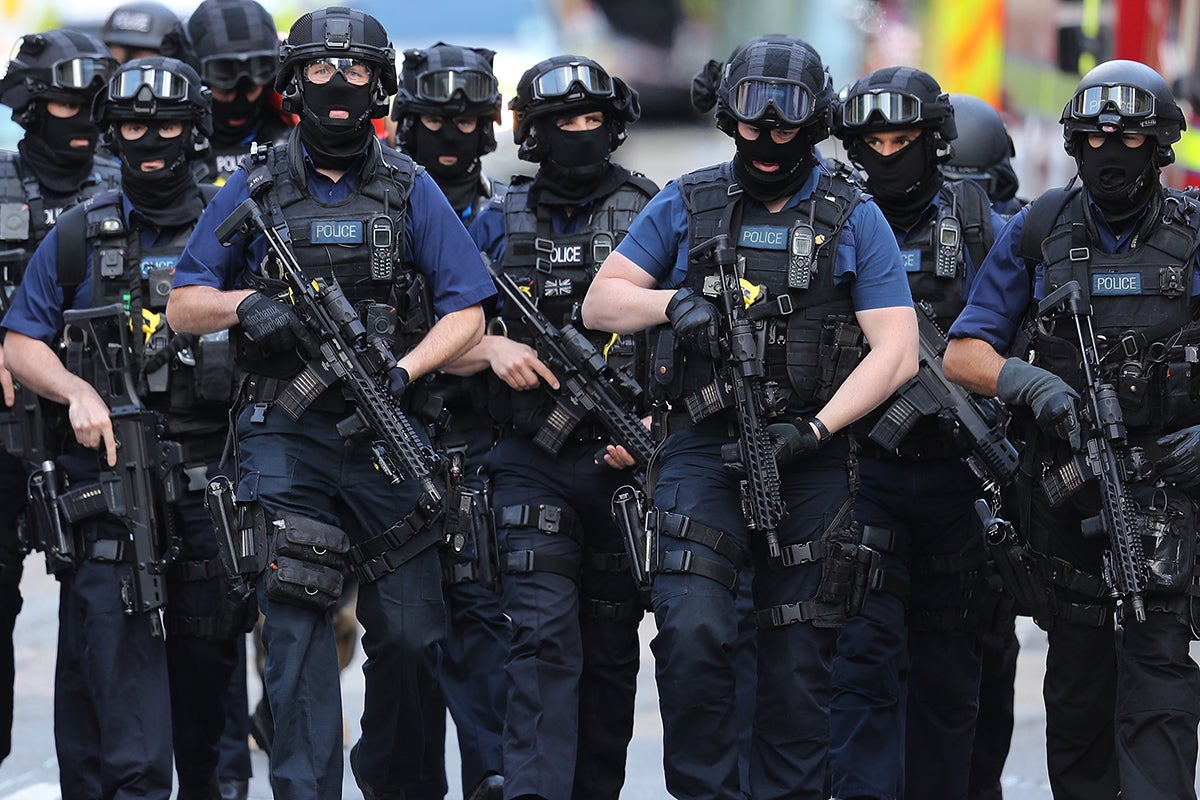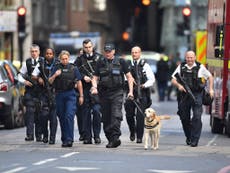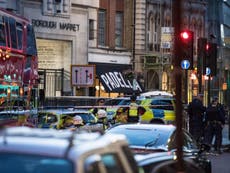The general election will go ahead, but the results could be drastically altered by the recent terror attacks
Last night’s attack in London could give a huge boost to the Conservatives’ chances in the election, as it becomes more about national security than Brexit or austerity. But Labour shouldn’t lose hope


As after the Manchester bombing, so after London Bridge, the solid political consensus is that the general election must go ahead. And that consensus is right. To postpone the vote would be to “give in to terrorism”; it would be to signal that, as a country, the UK bends under pressure and that our democracy can be subverted by lethal criminal – yes, criminal – force.
Any postponement would also be difficult in legal terms, as the Brexit Secretary David Davis pointed out. Tony Blair delayed the 2001 election by a month because of the foot and mouth outbreak, but for an election to be postponed, once it has been legislated for, requires MPs to give that authority and Parliament has been dissolved. So, short of the Prime Minister declaring a full-blown emergency – a move that would presumably require the Queen’s consent – there is no alternative to proceeding with the election on Thursday.
The compromise, accepted by all the parties except Ukip, is to suspend national campaigning for a day, and resume on Monday. Accepting that the election will be held on schedule, with one day lost to the national campaign, however, does not mean that it goes ahead in completely normal conditions or that the attacks so close to the vote will make no difference.
In practical terms, it could be argued that getting the message, and the vote, out is of more relative importance to the challengers than the incumbents. So the lost day – as the lost days of campaigning after the Manchester bombing – could be a slight alteration of the advantage. But this is minor compared with the effect on the focus and tone of the campaign.
The Manchester suicide bombing introduced a security element into the campaign that had not been there, or certainly not to that extent, before. And that new focus came at a time when the Conservatives in general, and the Prime Minister in particular, had dug themselves into a hole over the contentious issue of payment for “social care”.
Something similar could be said about the confusion over the Conservatives’ position on income tax that dominated the airwaves on Saturday, in the hours before the London Bridge attack. Would those mistakes – and they were mistakes – have had a more enduring effect on the campaign, had there been no murderous interventions? We will never know.
Neither will we ever know what effect, if any, the inevitable new focus on security will have on the vote. In the immediate aftermath of the Manchester bombing, social media contributors took a generally dim view of commentators who rushed to judgement about the potential effects on the campaign. But it was surely a valid question to ask, and it is again.
It may be distasteful to say so, but the atrocity in Manchester, and now London Bridge, could present the Conservatives with several advantages, beyond diverting attention from their poor campaign at two critical points. One is the advantage of incumbency. The Prime Minister and Government of the day receive a great deal of “free” – and mostly positive – airtime, simply by saying the sort of thing that is expected of political leaders at such times.
For Theresa May the advantage is twofold. Not only is she Prime Minister, but security is one of her stronger suits, given that she was Home Secretary and knows the security portfolio inside out. A further advantage for the Conservatives is that they are regarded – rightly or wrongly – as taking a stronger line on national security than Labour, especially Labour under the leadership of Jeremy Corbyn.
As became clear after Manchester, however, the advantage does not flow all one way. A terrorist attack, and what now looks like a spate of attacks, so close to an election cannot but challenge the Government’s line that it has successfully defended the country against terrorism.
After Manchester, too, the Labour leader offered a rather different view of root causes. While Corbyn denied blaming the Government for the Manchester attack in any way – and indeed did not do so – he did ask about the possible impact on domestic security of the UK’s involvement in foreign wars. Nor – surprisingly perhaps, given the context – did he attract much public opprobrium for doing so.
So the advantage to the Conservatives of a national security election – as opposed to a Brexit or migration or austerity election – may not be as decisive as initially thought. But it will not be the same election as it would have been, even if going ahead with the vote as normal shows the necessary determination not to be cowed.



Join our commenting forum
Join thought-provoking conversations, follow other Independent readers and see their replies